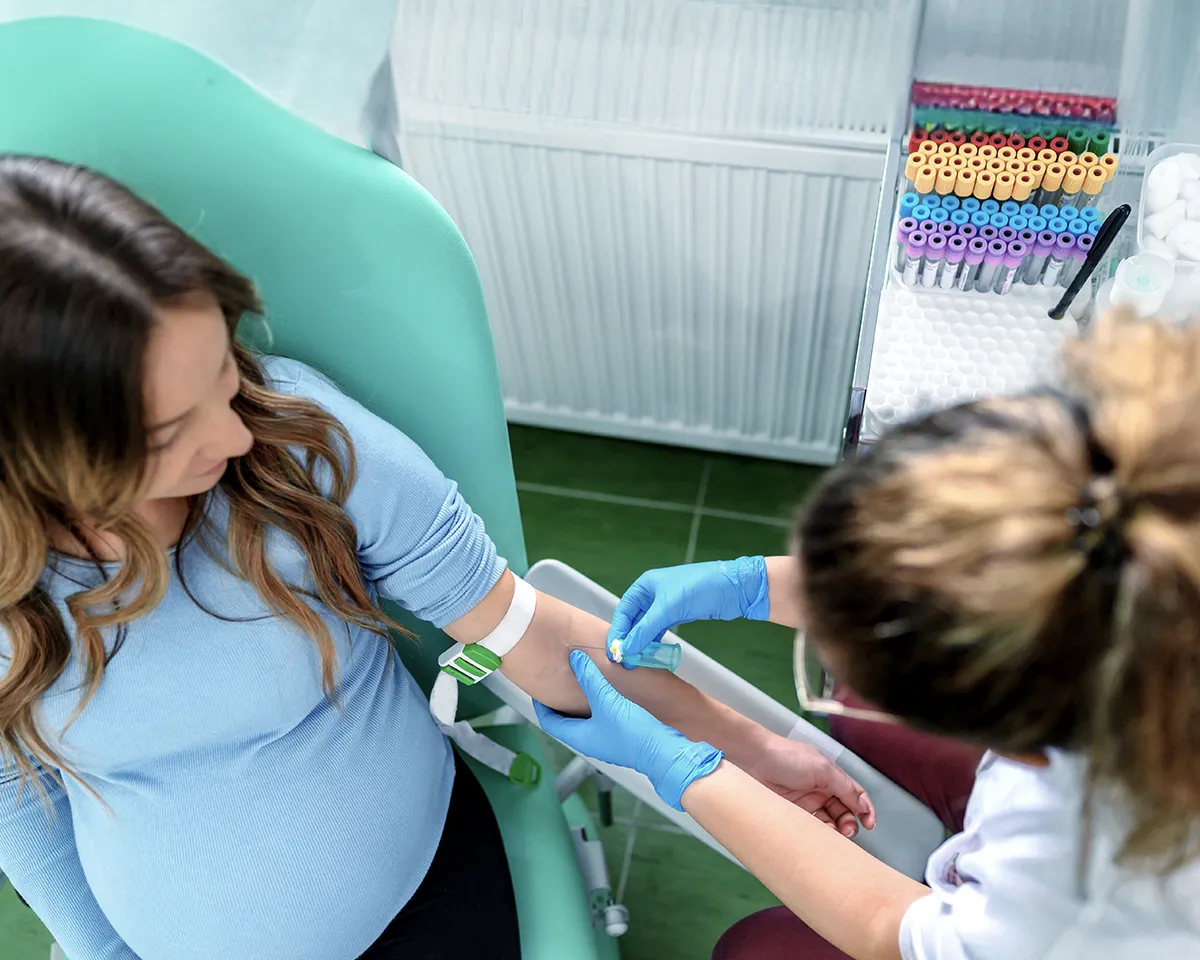Obstetrics & Gynecology
Wherever you are in life, we’ll meet you there. We’re committed to providing expert, personalized obstetric and gynecologic care at any age. A highly skilled team offers routine wellness services, pregnancy care and specialized treatments, all centered around you and your needs.
BJC HealthCare works with Washington University physicians, BJC Medical Group, and providers across the region to deliver extraordinary care. Our experts offer the most advanced diagnostic services and treatments available for the health needs of every individual. We prioritize your medical needs, personal preferences and, above all, your overall wellness and quality of life.
At BJC HealthCare, you’ll find:
Comprehensive care: As one of the largest healthcare systems in the region, we give you access to nationally recognized hospitals and physicians. Our range of women’s health specialties includes obstetrics, gynecology, maternal-fetal medicine, gynecologic cancer and infertility. This breadth of expertise means we can provide a lifetime of care.
Advanced diagnosis and treatment services: Our Washington University partners provide robust research and top-level academic programs that keep us current with the most advanced treatments and services. We also participate in ongoing clinical trials so our patients have access to the newest therapies and more treatment options.
Focus on high-risk pregnancies and fetal conditions: Across the St. Louis region, BJC provides access to world-class maternal-fetal medicine specialists and newborn medicine specialists. Within our system, Barnes-Jewish Hospital and St. Louis Children’s Hospital offer the highest level of care that a mom and baby can receive, all on one campus. This includes our Fetal Care Center and Level IV newborn intensive care unit (NICU). When necessary, we provide consult from or rapid transport to one of our higher-acuity hospitals, meaning you and your baby are always in good hands.
Compassionate, individualized care: Respect, inclusion and equality are just a few of the values we prioritize as caregivers. Patients of all ages, races, backgrounds, sexual orientations and gender identities turn to us to feel heard and cared for. We tailor services to your needs and help you feel comfortable voicing your needs and preferences.
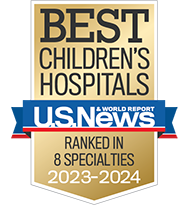
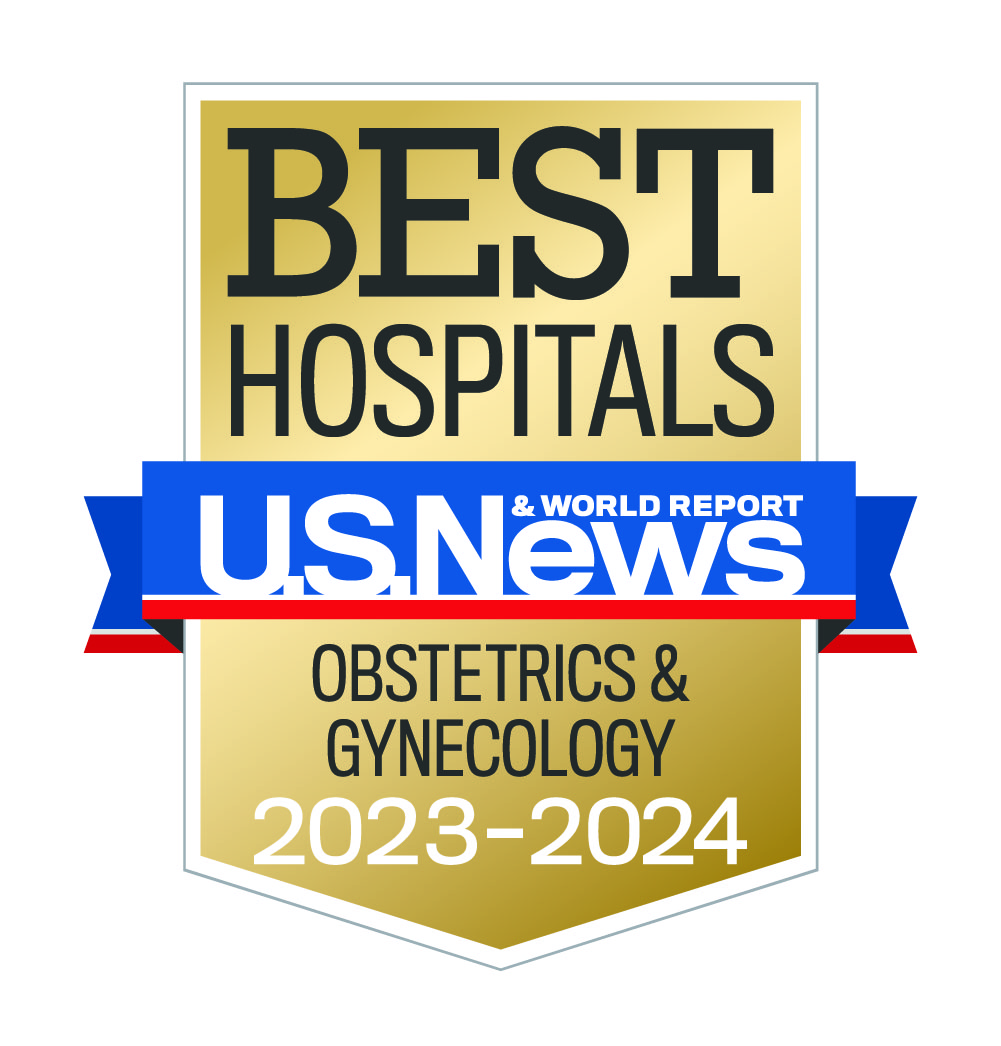
We design our services around you and your needs. We blend compassion, expertise and leading-edge treatments to help you stay well now and for years to come.
Helping you prepare for your new arrival
BJC HealthCare offers childbirth classes, breastfeeding education and Childbirth Center tours to help you get ready for parenthood.
From routine concerns to complex conditions, our women’s health specialists are qualified to care for any issue affecting you or your baby.
- Abnormal menstruationWe treat heavy, frequent or painful menstrual periods, as well as irregular or infrequent menstrual periods.
- Bladder and pelvic floor painMany women experience pain or a feeling of fullness in their lower abdomen (belly) and pelvis.
- Bladder outlet obstructionA blockage in the urethra causes urine to back up in the bladder, increasing the risk for lung and kidney problems.
- Breast abnormalitiesWe assess and treat symptoms such as breast pain and asymmetry (breasts that have different sizes, shapes or appearances).
- Bronchopulmonary dysplasia (BPD)BPD is a breathing disorder in newborns that results from problems with lung development in the womb.
- Chronic urinary tract infections (UTIs)Some women develop infections in their lower urinary tract, including in the bladder.
- Congenital anomalies of the reproductive tractSome babies are born with disorders of the vagina, cervix, uterus, ovaries or fallopian tubes. The external or internal genitalia can be affected.
- Congenital diaphragmatic herniaIntestines poke through an abnormal opening in the diaphragm and cause problems with lung development.
- Congenital heart diseaseProblems with the structure or function of a baby’s heart can affect the way the heart pumps blood out to the rest of the body.
- Diabetes in pregnancyPreexisting Type 1 or Type 2 diabetes increases the risk of pregnancy complications and health conditions in your developing baby.
- Diminished ovarian reserveWomen are born with all the eggs they’ll have in their life. Egg quantity and quality decreases after age 35, making it harder to get pregnant.
- Early puberty or delayed pubertyHormone disorders and other problems can affect breast development, menstruation, height, skin and body hair in girls.
- EndometriosisUterine tissue grows outside the uterus, often on the ovaries or fallopian tubes, and may cause pelvic pain and other symptoms.
- Fecal incontinenceFecal incontinence is the inability to control bowel movements, which may lead to bowel accidents.
- Genital injuriesStraddle injuries are the most common type of genital trauma in girls. They’re often the result of falls or accidents during play or sports.
- Gestational diabetesGestational diabetes (high blood sugar) develops in pregnant women who did not previously have diabetes. It usually goes away after delivery.
- High blood pressureHaving high blood pressure before pregnancy or developing it during pregnancy (gestational hypertension) increases the risk of preeclampsia.
- Kidney failureImproper development of the kidneys or urinary tract in the womb can lead to kidney dysfunction in babies.
- Male factor infertilityProblems with sperm, such as quantity, shape, function or motility (how they move), can affect fertility.
- Maternal pelvic floor birth injuryPregnancy and childbirth, including weight gain, hormonal changes and the stress of labor and delivery, can weaken pelvic floor structures.
- MenopauseMenopause is when you stop having menstrual periods, usually between the ages of 45 and 55. Symptoms can include hot flashes and vaginal dryness.
- Miscarriage or fetal lossWomen with previous miscarriages are considered high-risk pregnancies, though many go on to have healthy, full-term babies.
- Necrotizing enterocolitis (NEC)Tissue in a baby’s large intestine (colon) gets inflamed and damages the colon. NEC is more common in premature babies.
- Neonatal seizuresBabies may have seizures after birth due to brain injuries, bleeding inside the brain, low oxygen levels or other causes.
- Ovarian cysts or pelvic massesFluid-filled sacs or solid growths, which are usually benign (noncancerous), can grow on or within the ovaries.
- Ovulation disordersWhen your ovaries don’t release eggs on a predictable cycle, it can be difficult to get pregnant.
- Pelvic factor infertilityUterine abnormalities, scarring, fibroids or blocked fallopian tubes can cause infertility.
- Pelvic organ prolapsePelvic organs may drop from their normal position and bulge into your vaginal opening.
- Pelvic painPelvic pain can result from many conditions, from an STI to uterine fibroids, endometriosis or pelvic inflammatory disease (PID).
- Polycystic ovary syndrome (PCOS)PCOS is a hormonal disorder that prevents normal ovulation. It can lead to cysts in the ovaries that may affect fertility.
- Preeclampsia and eclampsiaPreeclampsia and eclampsia are sudden and dangerous spikes in blood pressure after the 20th week of pregnancy, in addition to problems with organs.
- Recurrent pregnancy lossSome women get pregnant but are unable to carry the pregnancy to term. Recurrent pregnancy loss is two or more miscarriages in a row.
- Spina bifida or MyelomeningocelePart of an unborn baby’s neural tube doesn’t close properly during development, so the spinal cord is vulnerable to damage.
- Transvaginal mesh complicationsMesh used in a previous gynecological surgery can lead to pain, bleeding, infection or exposure of the mesh.
- Twin-to-twin transfusion syndrome (TTTS)TTTS occurs when identical twins who share a placenta and blood vessels have unequal blood flow.
- Unexplained infertilityIn up to 30% of people, test results don’t reveal a specific cause for infertility.
- Urinary incontinenceAccidental urine leakage can happen when you sneeze or cough (stress incontinence). Or you may feel a constant need to urinate (urgency incontinence).
- Uterine fibroidsFibroids are tumors (almost always noncancerous) that develop in the uterus. They can cause pelvic pain, heavy periods and bleeding between periods.
From routine care to the most advanced treatments, we are nearby to cover your every health need. Find expert, compassionate care to help you live your healthiest life at every stage at convenient locations throughout Missouri and Illinois.
 Alton Memorial Hospital
Alton Memorial Hospital Barnes-Jewish Hospital
Barnes-Jewish Hospital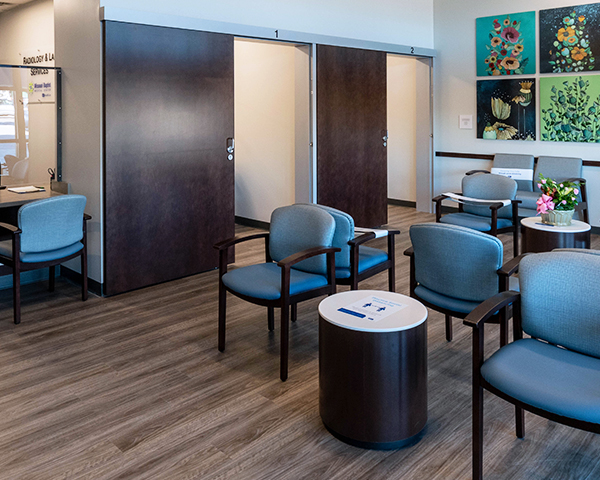 BJC Outpatient Center at Chesterfield
BJC Outpatient Center at Chesterfield BJC Outpatient Center at Edwardsville
BJC Outpatient Center at Edwardsville BJC Outpatient Center at Sunset Hills
BJC Outpatient Center at Sunset Hills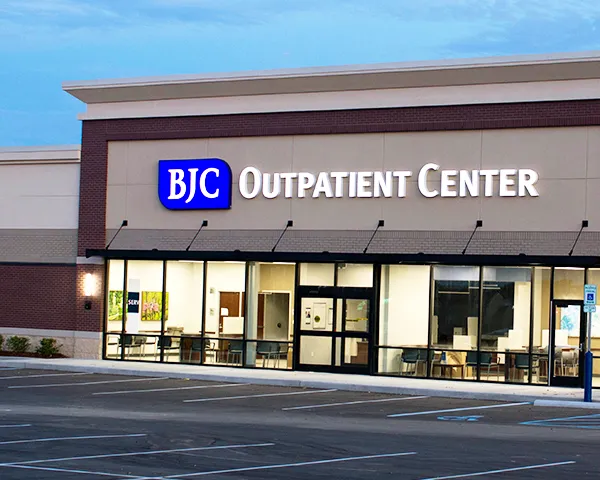 BJC Outpatient Center at Wentzville
BJC Outpatient Center at Wentzville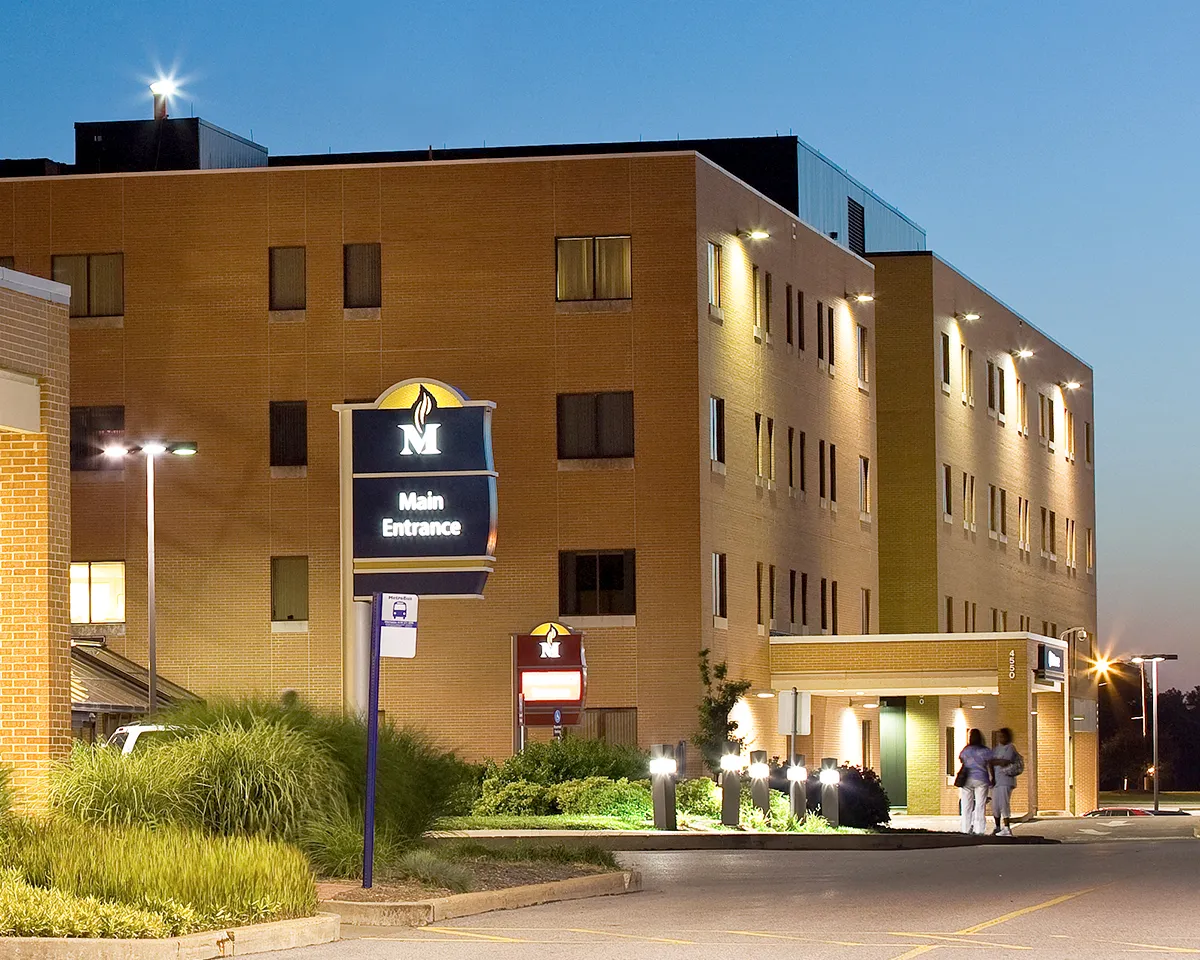 Memorial Hospital Belleville
Memorial Hospital Belleville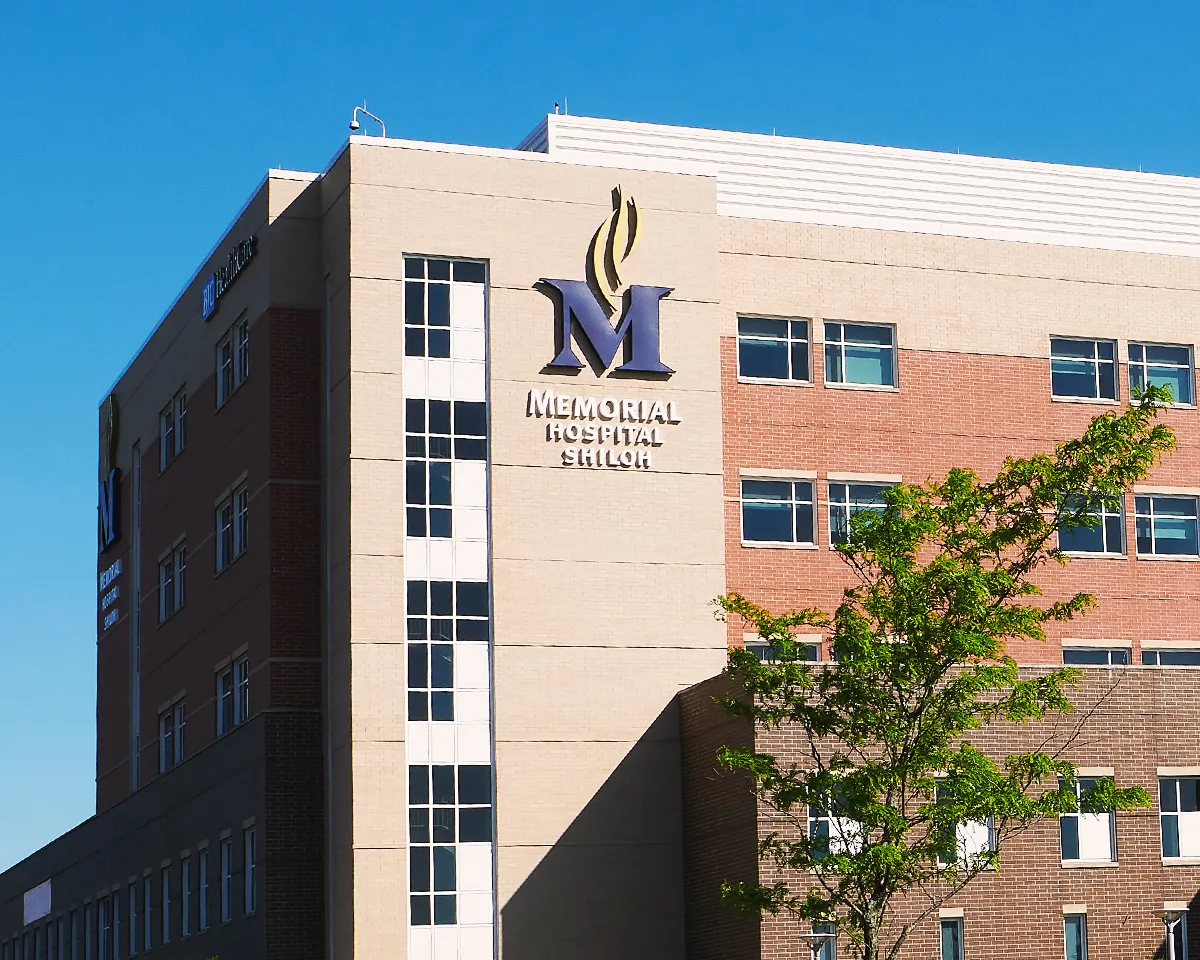 Memorial Hospital Shiloh
Memorial Hospital Shiloh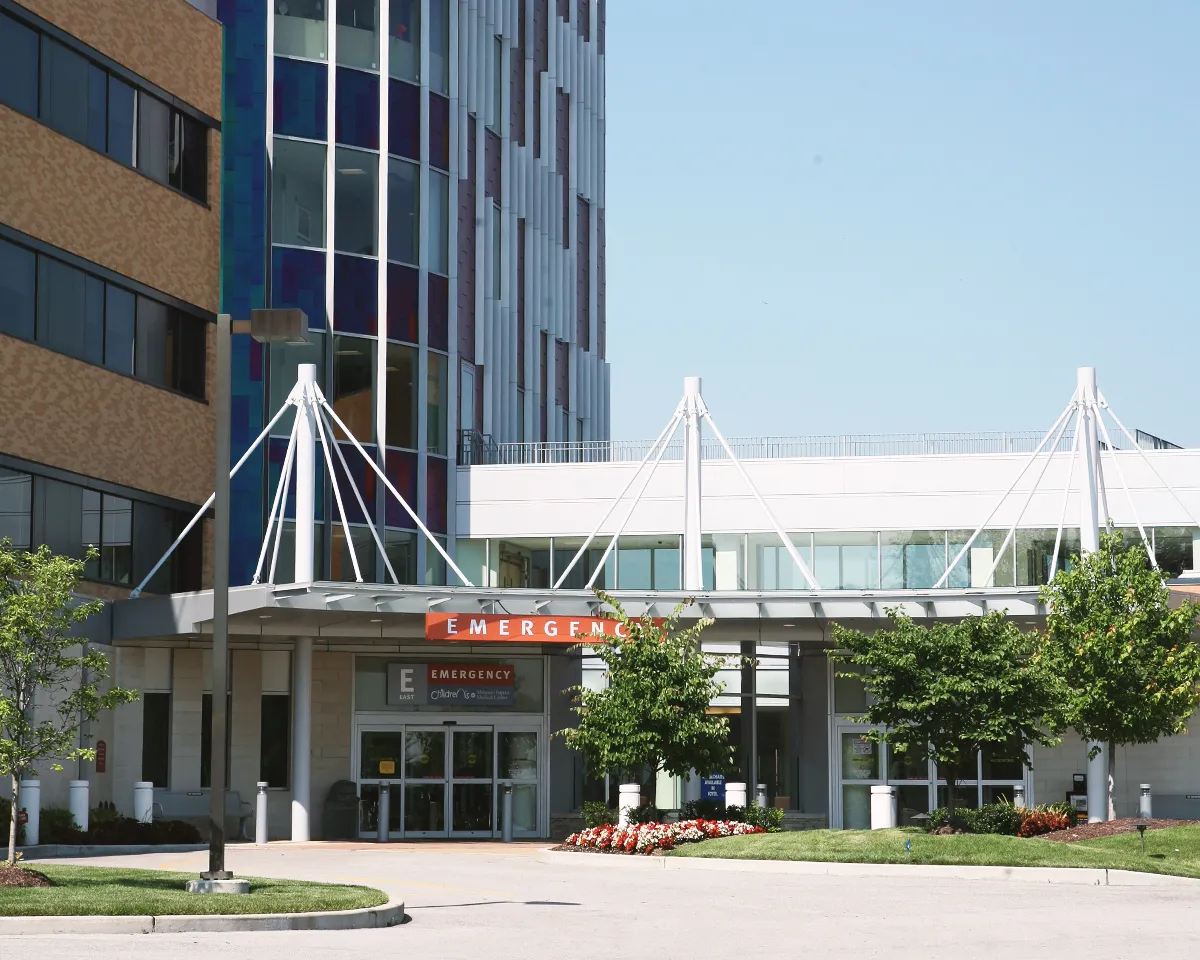 Missouri Baptist Medical Center
Missouri Baptist Medical Center Missouri Baptist Sullivan Hospital
Missouri Baptist Sullivan Hospital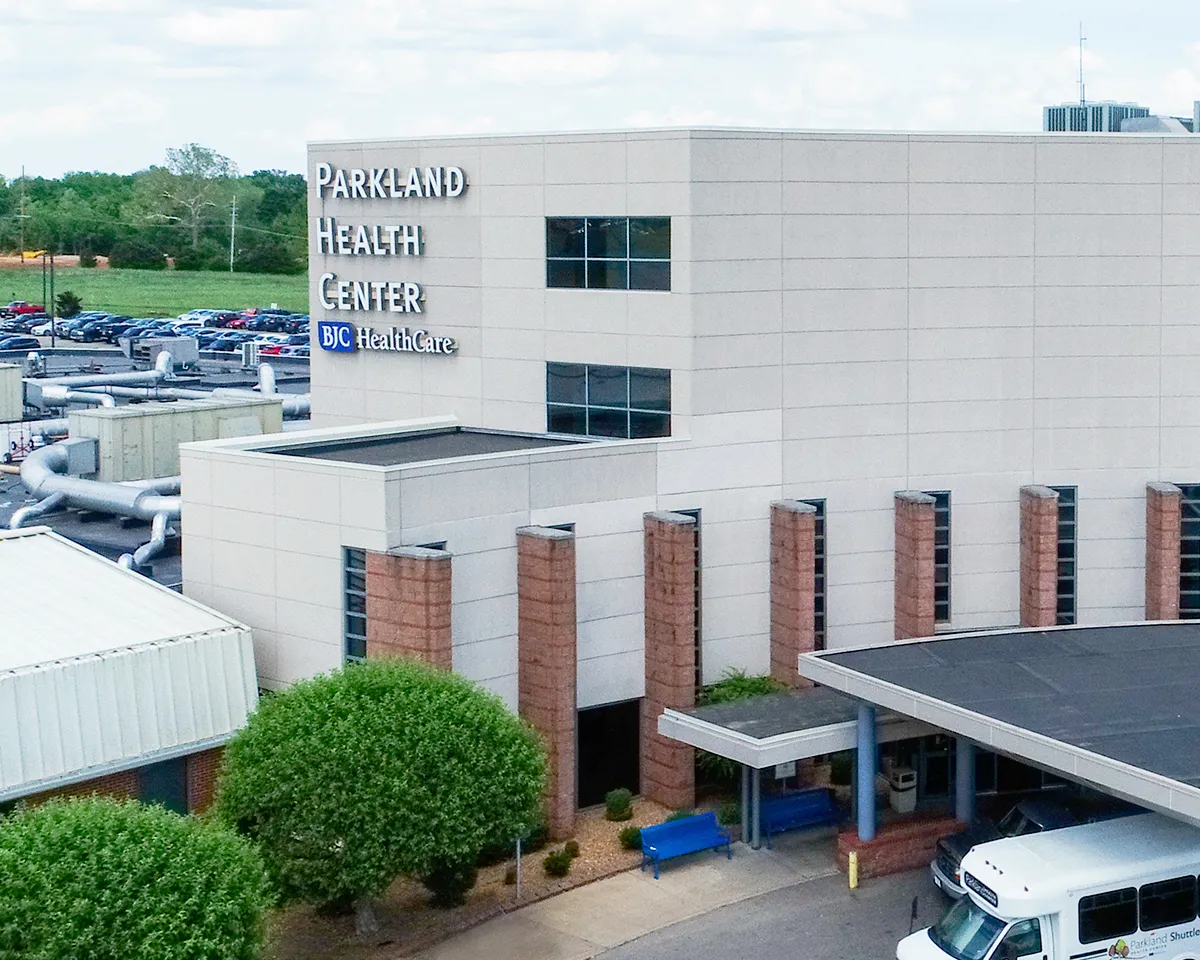 Parkland Health Center
Parkland Health Center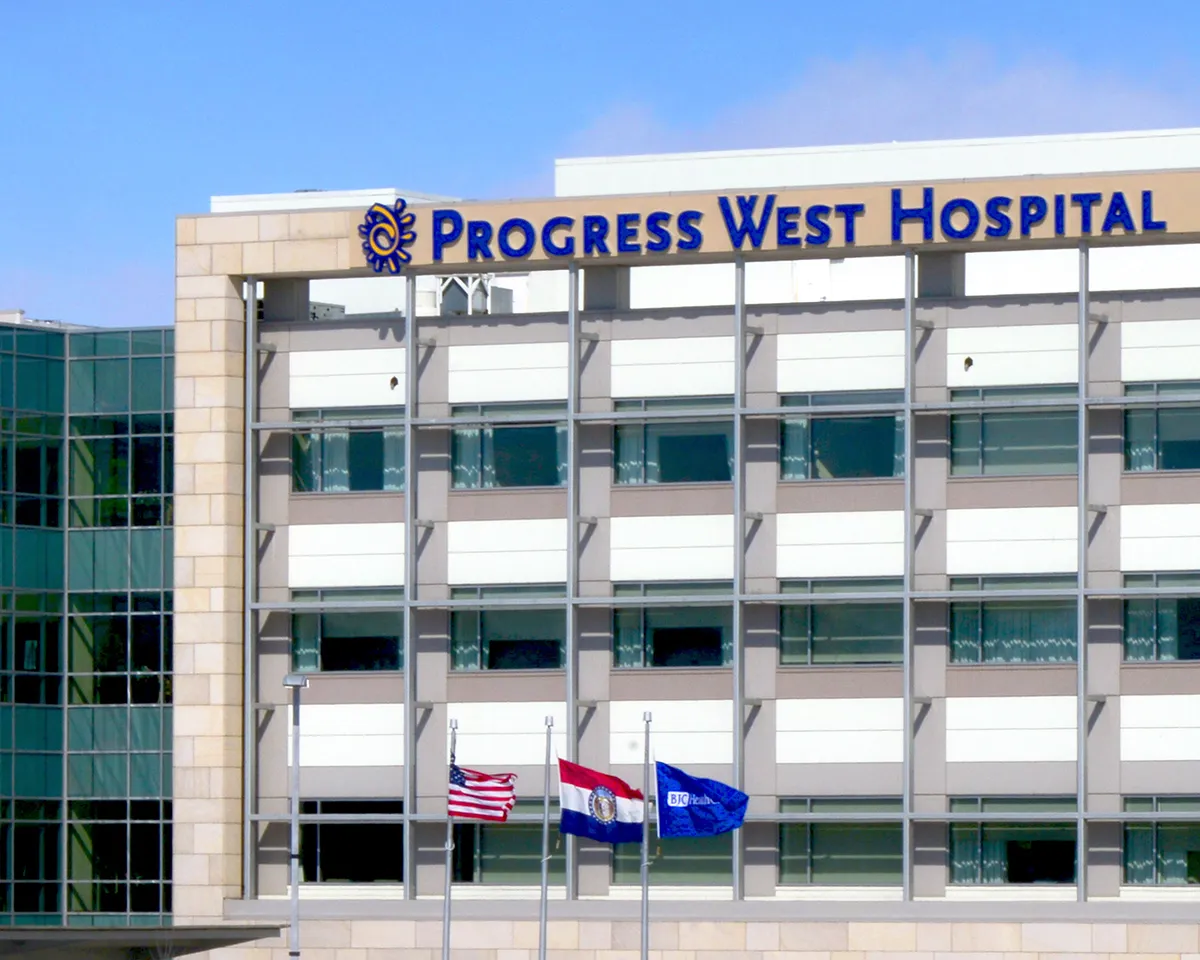 Progress West Hospital
Progress West Hospital
Schedule your appointment
Call (314) 362-9355 or (800) 392-0936 for more information about our Ob/Gyn services or to schedule an appointment.
